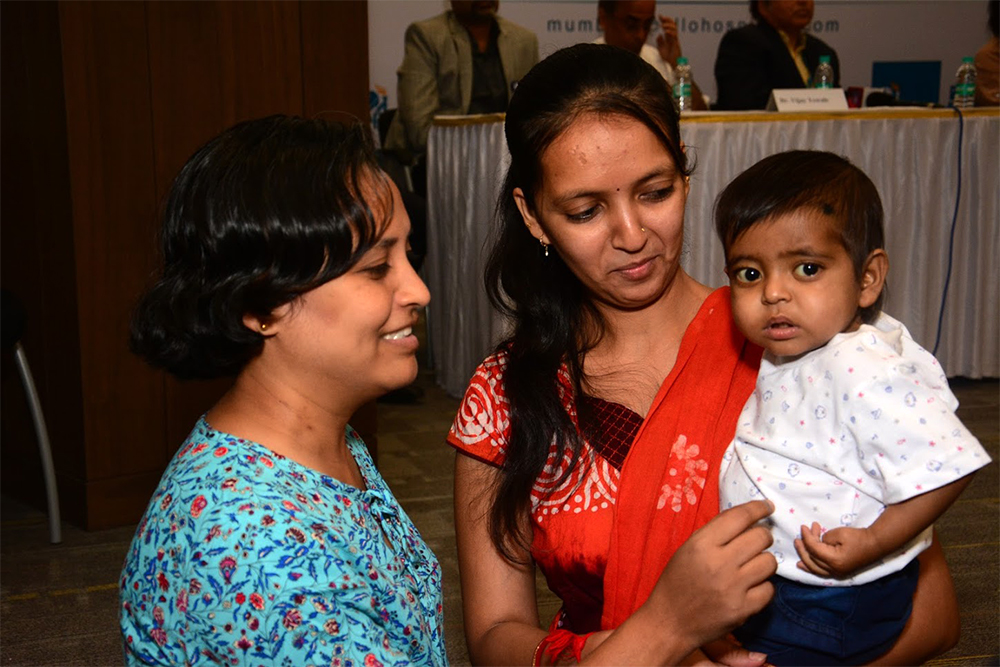In India, most citizens are not aware either about organ donation or how to go about through the correct channels. Various NGOs and corporate are trying to raise awareness across the country and reach out to masses.
A critically ill one-year-old baby underwent a successfully performed a liver transplant. He is the the smallest baby at 6.5 kgs to have undergone this surgery in Maharashtra. The baby’s aunt Divya, donated a part of her liver and was performed by Apollo Hospitals Navi Mumbai.
The baby, Ram Mistry was diagnosed with end stage liver disease due to a rare congenital condition called Biliary Atresia, which progressed to advanced liver cirrhosis within months of his birth. The parents of the baby, Ishani Mistry, mother and Pritesh Mistry, father are based in Gujarat. Finding a team familiar with transplanting small babies and managing the cost of treatment were the biggest concerns for the Mistrys.
The human body is a complex machine with delicate organs performing critical life functions. When one of these organs, a kidney, or a liver, or a heart fails beyond repair, then organ transplantation is the closest option.
There are two major types of transplants, cadaver transplant and living transplant. 85% of transplants in western countries is cadaver transplants and 15% are live transplants. In India, this “%” is completely opposite.
A person can register for a cadaver donor if they don’t have a living donor in the family. However, cadaver donation is a lengthy and complex issue. Looking at the current rate of organ donation percentage in India, it takes minimum 5 to 7 years for a person to receive the organ from the date of registration.
Historically, India has a very low rate of organ donation. Although this number has improved over the past three-four years, the country still has a long way to go. Every year 3,00,000 Indians need an organ transplant, but only 2 to 3% of this demand for new organs is met. As per past reports, more than 30,000 individuals are in need of liver transplants in the country. However, less than 5% of these numbers receive a liver before it is too late. The need for kidneys in India stands at two lakh annually, of which only 8,000 manage a transplant. Patients requiring heart or lungs transplants are worst of with less than 1% of them receiving a transplant before time runs out.
Crowd funding has come a long way in collaborating with stakeholders to provide a solution. Yadnya, was dealing with a rare blood condition called Budd Chiari Syndrome which caused him constant vomiting of blood since he was 8 months old. He underwent a stent procedure to control this bleeding and was stable for a year when he redeveloped bleeding and advanced liver disease. He also had severe lung disease related to his liver disease. He was assessed and underwent a liver transplant in August 2017, when his mother Madhura donated part of her liver. After a stormy early post transplant period he made a good recovery. Both mother and son are now thriving.
Thank you for reading the story until the very end. We appreciate the time you have given us. In addition, your thoughts and inputs will genuinely make a difference to us. Please do drop in a line and help us do better.
Regards,
The CSR Journal Team


